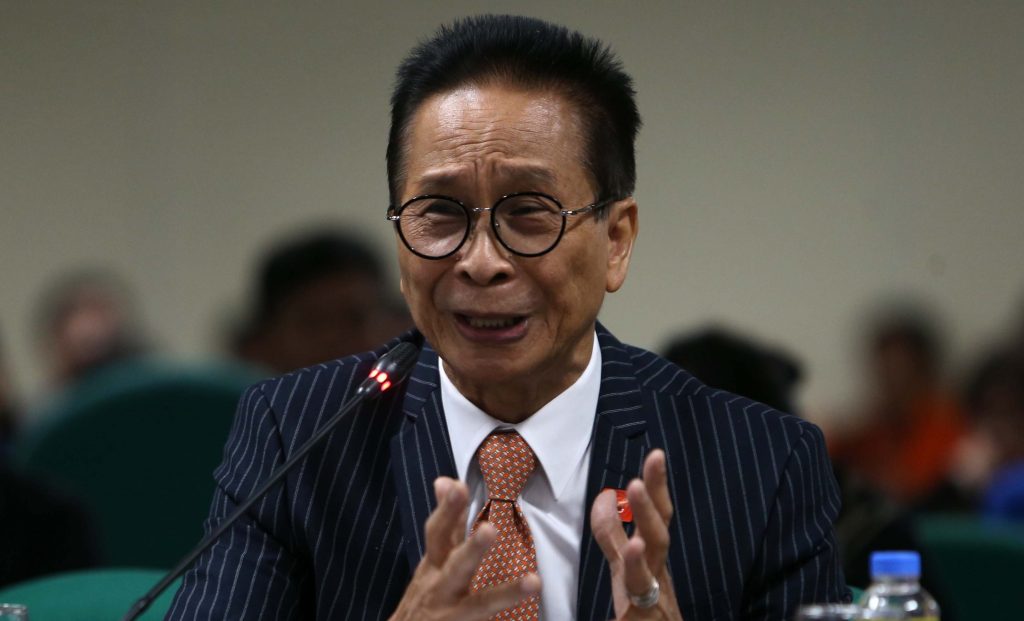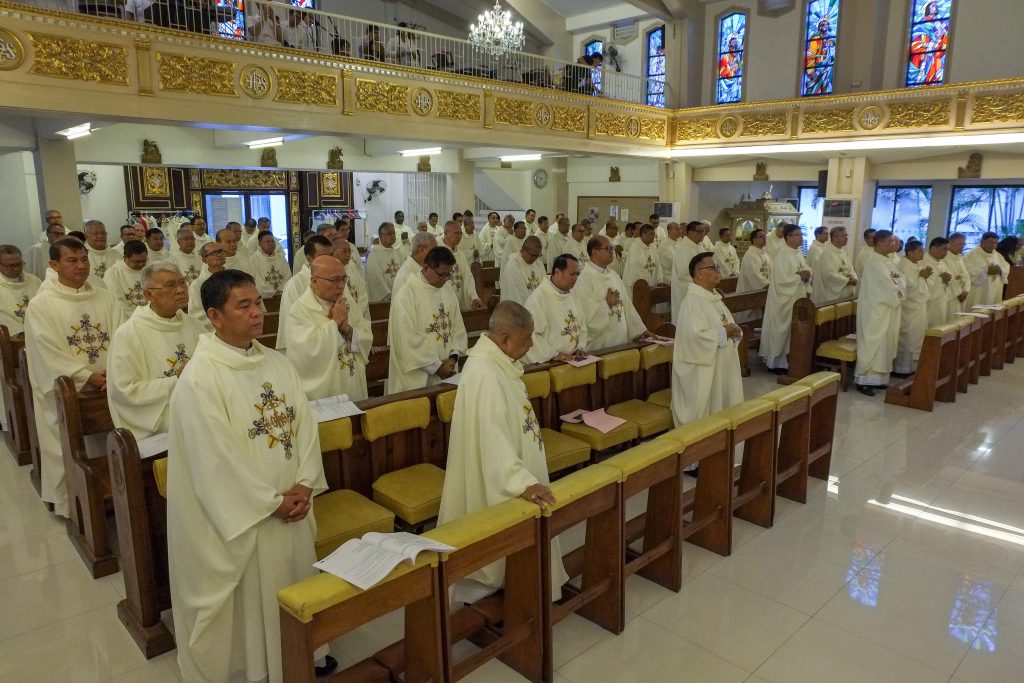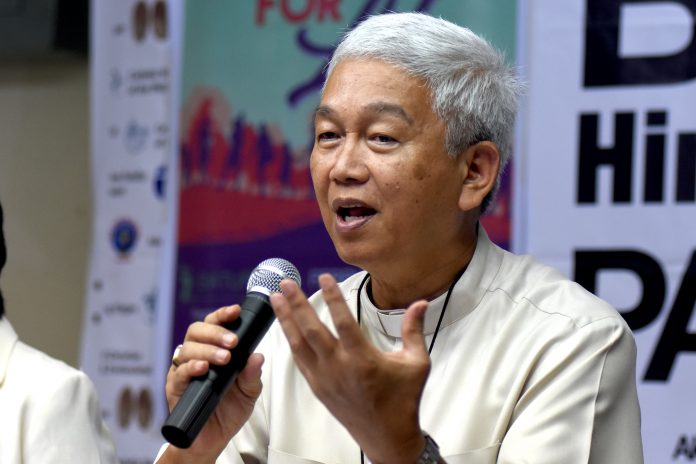Bishop Broderick Pabillo, Apostolic Administrator of the Archdiocese of Manila, challenged the Philippine government on Monday, July 20, to file a case against the country’s Catholic bishops.
The prelate was reacting to a statement made by lawyer Salvador Panelo, chief presidential legal counsel, accusing the church leaders of violating the principle of separation of Church and State.
The Catholic bishops’ conference on Sunday, July 19, issued a pastoral letter criticizing the passage of the country’s new anti-terrorism law.
Panelo accused the bishops of pressuring the Supreme Court to decide against the law when it issued the pastoral letter sounding the alarm on the measure.
In their letter, the church leaders said they “draw consolation” from the petitions being filed before the Supreme Court, questioning the constitutionality of the anti-terrorism law.
Panelo noted that that the bishops have expressed supports for the petitions, citing a line in the letter that says “Will the highest level of our Judiciary assert its independence, or will they, too, succumb to political pressure?”
“Such advocacy, coupled with its call to its faithful followers to prayer, effectively exerts religious influence or pressure on (the) Supreme Court to decide against a national law designed to combat the global crime of terrorism and to secure the safety of the Filipino people,” said Panelo in a statement.
He said that the bishops’ letter “appears to have violated” the constitutional provision on the separation of the Church and the State.

File charges
“If it is really a violation, then file charges against us. We are challenging them, if there was really a violation,” countered Bishop Pabillo in an online media briefing on Monday.
“Don’t we have a right to speak on the failures of the government? Just because we are in Church we cannot speak? We are also citizens,” said the bishop.
Bishop Pablo Virgilio David of Kalookan, acting president of the bishops’ conference, said the constitutional doctrine of separation of the two institutions is only violated if the Church is attempting to put up a State, or the State is trying to establish a Church.
“We have no intention of putting up a government; that’s not our field of expertise,” said Bishop David in a statement posted on social media.
“We are just spiritual leaders and the only influence that we have is religious influence, not political influence,” he added.
Bishop David said the church leaders “do not have political influence over the country’s Judiciary, nor do we interfere in the operations of government.”
“Our only influence is on conscience, because it is our duty to form consciences, and we are accountable to God for this,” he said.
He said that as Filipino citizens, the bishops are only participating in the exercise of the freedom of expression of the citizenry.
“What we hope and pray for is that both our Legislature and Judiciary remain truly independent, and continue to function as designed by our Constitution,” said Bishop David.

‘False narrative’
The president’s legal counsel, however, said that even if the bishops’ statement is not deemed to be a violation of the principle of separation of Church and State, “we note that it parrots the detractors favored false narrative.”
Panelo said the bishops’ letter alleged that the anti-terrorism law is violative of the Constitution; that it allows warrantless arrest and wiretapping of suspected terrorists; that it sends a chilling effect on those exercising their freedom of speech; that there is a pattern of intimidation being undertaken by the government.
Panelo maintained that the petitions against the anti-terrorism law that were filed before the Supreme Court should be dismissed for “utter lack of merit on procedural and substantive grounds.”
The lawyer said the bishops only has to trust the Philippine judicial system as adopting an opposite mindset only undermines the country’s legal institutions.
“The [Catholic bishops’ conference] likens us to ‘the proverbial frog swimming in a pot of slowly boiling water.’ For its education, we have been in a far worse situation for years due to the favorable treatment which people in power or of influence have been receiving from past governments,” said Panelo.
“The present dispensation has taken us out of this environment through the president’s political will in enforcing the law equally to all, bar none, including those managed in the past to be immune therefrom or untouchable,” he said in a statement.









